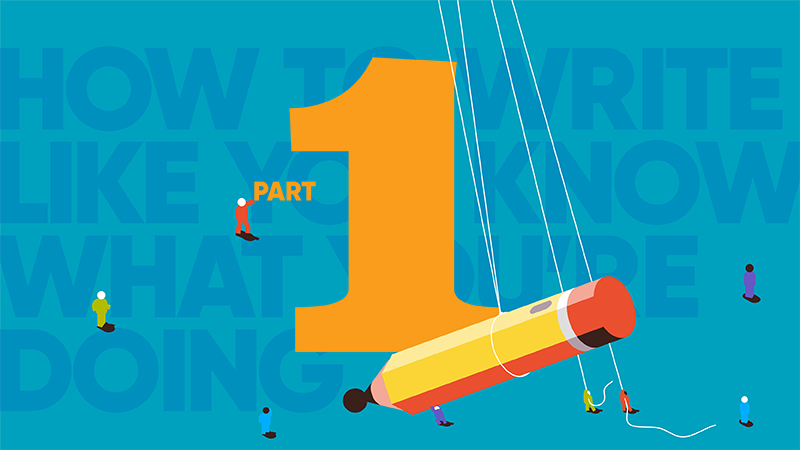Since I just referenced a TV show from 45 years ago, you might guess how old I am and, therefore, how long I’ve been copy editing. Let’s just say I started before Google. (Back in the day, I had to call corporations to ask, “Is this how you spell this product’s name?”)
Despite my English degree and my many (many) years of thinking about spelling and grammar all day, if I’m stumped by something grammatical, I still don’t want anyone to say something like “object of the preposition” to explain it to me. If it makes me zone out, I’m going to hazard a guess that you don’t enjoy such technical explanations, either.
Nevertheless, you want to look good in that work email or PowerPoint presentation (or that humble-brag social post). I understand. That’s why I’ve started this series called How to Write Like You Know What You’re Doing. I offer you little tricks so you know you’re using the right word or punctuation mark. I’ve got a million of them.
Let’s start with my favorite.
Everyday/every day
I see these used incorrectly all the time, even by major advertisers. Naturally, I write to tell them because I’m nerdy that way. (Shout-out to Vermont Country Store, who actually changed it to the right version.)
Here’s the trick:
I wear my everyday clothes every day.
An everyday occurrence. I go there every day. See the difference? When you write “everyday,” you mean something that isn’t extraordinary. Not special. An everyday trip to the store.
When you write “every day,” you mean each day.
(Here’s that technical explanation that makes your eyes glaze over: “Everyday” is an adjective. Adjectives describe words. Bitter cold. Huge oversight. Boring explanation. You get the drift. “Every day” is just a phrase that means, well, each day.)
Next time you aren’t sure which form to use, remember: “I wear my everyday clothes every day.”
Affect/effect
Here’s the trick: When you can replace the word affect/effect with the world “alter,” the correct word is affect. Pretty clever, right?
This doesn’t affect (alter) me. It’s affect with an a!
The antibiotics had no effect. It wouldn’t make sense to say, “The antibiotics had no alter.” So you know it’s effect with an e!
(The eyes-glazed technical information is that “affect” means to change and “effect” is the result of that change. I don’t know about you, but knowing this would never help me decide which to use. The “alter” trick works for me every time.)
I.E./E.G.
I’m hoping you don’t have to go around writing either thing on the regular, but if you have to do a presentation or sound fancy in a letter, it’s good to know which is which.
Here’s the trick: Use “i.e.” when you mean in other words. Use “e.g.” when you mean for example. So:
i.e. = in other words
e.g. = for example
(Technical explanation? They’re both Latin, of course. “i.e.” stands for id est, and “e.g.” stands for exempli gratia. Oh, and remember to put a comma after either one.)
Marketing changes all the time, but writing doesn’t change quite so often. I hope these tricks help you every day and that they alter your writing, i.e., make it better.



